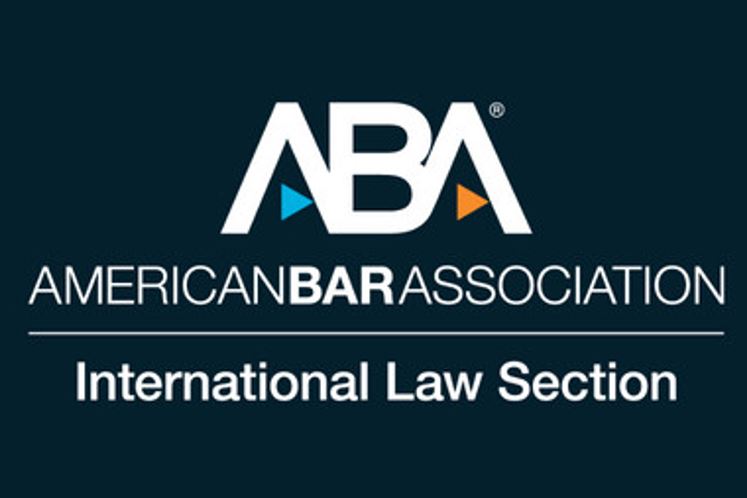I. Can allegations of corruption serve as a bar to jurisdiction of arbitral tribunals or admissibility of claims?
Under Czech Law, the principles of autonomy, separability of arbitration agreement from the main contract, and compétence-compétence allow the arbitrators to rule on their jurisdiction, as well as on the allegation of corruption raised by the parties. Therefore, allegations of corruption do not, by themselves, serve as a bar to the jurisdiction of the arbitral tribunal or the admissibility of claims, unless the arbitrators themselves conclude otherwise while assessing the validity of the arbitration clause.
If a party raises the issue of corruption regarding the conduct of any party during the arbitration proceedings, this does not automatically lead to the termination of the arbitration process. Some have argued that, in certain cases, Czech arbitrators may have a duty to report bribery to Czech authorities if they learn of it from a credible source. However, this potential duty to report has not yet been tested by Czech courts, and therefore, there is no established legal precedent to support the conclusion that arbitrators have a duty to report bribery to authorities, despite their confidentiality obligations.
II. Can allegations of corruption affect the validity of an arbitral award?
An allegation of corruption could affect the validity of an arbitral award only if it concerns the conduct of the arbitrators, the validity of the arbitration clause, and in the exceptional case where the corruption constitutes a breach of public order. In these cases, the award could be set aside. The case law on this issue is sparse. However, to claim a breach of public order as a ground for setting aside an arbitral award, the arbitral award must be manifestly contrary to the fundamental rules and principles of the rule of law of the Czech Republic. The alleged violation of fundamental rules and principles must be exceptional and sufficiently serious.
III. In annulment or enforcement proceedings, can the court review the award and the merits to determine whether corruption or related offences affect the underlying dispute?
In accordance with the prevailing case-law, the annulment and enforcement proceedings are not appellate proceedings and the merits of the case shall not be reviewed by the court unless for reasons listed in the Czech Arbitration Act. The grounds to annul an arbitration award are listed as following: a) the award was delivered in a matter on which a valid arbitration agreement cannot be concluded; b) the arbitration agreement is otherwise invalid, or has been annulled, or does not apply to the agreed matter; c) an arbitrator who was not called to arbitrate under the arbitration agreement or was not qualified to arbitrate has participated in the matter; d) the award was not delivered by a majority of the arbitrators; e) the party has not been given an opportunity to try the case before the arbitrators; f) the arbitral award condemns the party to a performance which was not requested by the beneficiary or to a performance impossible or illegal under Czech law; g) it is established that there are grounds for seeking a retrial in civil proceedings (i.e. if there are facts, decisions or evidence which, through no fault of its own, the party could not have used in the arbitration or when evidence may be adduced which could not be adduced in the arbitration proceeding).
IV. Can courts review corruption allegations which have not been raised in the arbitration?
Courts can review corruption allegations that were not raised in the arbitration in an annulment proceeding under the condition that this qualifies as one of the reasons for a mistrial under Czech law (i.g. there are facts, decisions or evidence which, through no fault of its own, the party could not have used in the arbitration or when evidence may be adduced which could not be adduced in the arbitration proceeding).
V. Do courts defer to the arbitral tribunal’s finding that no corruption acts were committed?
In the Czech Republic, the courts conduct an independent review only under the available grounds for annulment. Unless the act of corruption qualifies as a reason for an annulment, the court will not assess relevant issues which were reviewed in the arbitration proceedings.
VI. Is there a standard of proof used by arbitrators and reviewing courts to assess the existence of corruption?
In the arbitration and civil proceedings in the Czech Republic, in respect of the evaluation of evidence, reference should be made to the wording of Section 132 of the Civil Procedure Code, according to which the court shall evaluate the evidence at its discretion, each piece of evidence individually and all the evidence in its mutual context; in doing so, it shall carefully take into account everything that has come to light during the proceedings, including what the parties have stated. The principle of the free evaluation of the evidence shall apply. It is not required to establish the truth in any absolute sense, but rather a high probability of the relevant facts approaching the limit of practical certainty.
VII. Which method do arbitrators and reviewing courts employ to establish evidence of corruption?
As of now, there are not many arbitral awards dealing with corruption or similar offences. There are also no court decisions reviewing awards on this issue. However, in these cases, the arbitrators and courts would also establish evidence of corruption on the basis of the “high level of probability corresponding to a virtual certainty” appreciation of evidence.
VIII. Are arbitrators seated in your jurisdiction bound by criminal proceedings on issues that could impact the underlying arbitration dispute?
Under the Czech Law, the arbitrators and courts are bound by criminal judgment rulings that a criminal offence has been committed. However, they are not required to stay the proceedings until a criminal court rule on the offence that is relevant for the resolution of the arbitration dispute or the court decision on arbitral award review. They may do so if they deem it pertinent to their decision-making process.
Under Czech Law, criminal offences are non-arbitrable and the arbitral tribunals do not have jurisdiction to adjudicate them. The arbitral tribunals can rule on the civil consequences of the criminal offence conducted usually in relation to a commercial matter involving a contract with an arbitration clause.
IX. To what extent do they rely on or defer to findings from parallel criminal investigations?
Arbitral tribunals and Czech courts can stay their proceedings until a parallel criminal investigation is concluded to avoid possible contradictions between their decision and the criminal ruling. Moreover, the arbitral tribunals and Czech courts are bound by criminal court rulings that a criminal offence has been committed and shall reflect them in their decision.
X. Are remedies available when an arbitral tribunal rules that there is no evidence of corruption but subsequently a criminal ruling decides otherwise?
Under Czech Law, subsequent evidence of corruption may be a ground for the annulment of the arbitration award. However, even in this case, there is no possibility to request the annulment of the arbitral award in case the criminal ruling is adopted after the time limit for requesting the annulment has passed (i.e. the request for annulment is not filed within 3 months after the arbitral award was delivered to the party).
In the context of the enforcement proceedings of a domestic arbitral award, it is possible to request the stay of enforcement proceedings, and thereafter initiate the annulment proceedings at court.
Notwithstanding the above, a party may request compensation as a damaged party in the context of criminal proceedings.


